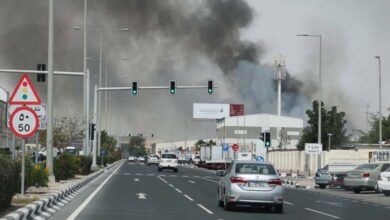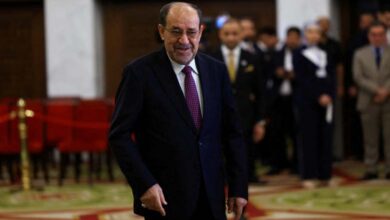The United Arab Emirates demands a balanced position on the future of the agreement on reducing oil production

The UAE demanded in a press release on Sunday a balanced position for the future of the oil production reduction agreement within the OPEC+ alliance to achieve stability for the global oil market by increasing oil production starting next August, without any conditions, in reference to the condition of extending the current production reduction agreement.
The current agreement, in which the UAE has been involved since May 2020, requires a reduction of 9.7 million barrels per day until the end of July 2020, followed by a gradual easing of production restrictions, currently of 5.8 million bpd. The agreement will effectively expire in April 2022, while other members of the 23-nation Production Reduction Agreement want to extend the agreement until December 2022, instead of next April.
The global oil market shows the validity of the UAE’s current position in refusing to extend the production reduction agreement. Demand for crude oil is increasing rapidly with the easing of the closure restrictions resulting from the coronavirus pandemic. Although the UAE is a major oil producer with an average of 3.1 million barrels per day under normal circumstances, it believes that the continued acceleration of demand for crude oil may jump in oil prices to levels that drive global inflation into a accelerating jump.

Oil is one of the sources of financial revenue for the UAE, but it believes that a fair price for producers and consumers alike without favoring one another is a top priority for the global economy, which has recently emerged from the consequences of the coronavirus. Currently, the average price of a barrel of oil is $76, which is about $11 higher than the expectations of OPEC and the International Monetary Fund for the price of a barrel during 2021, which makes the issue of increasing production without the requirement to extend the agreement more logical and realistic.
Since the first oil production cut agreement, which began in early 2017, the UAE has been the most abiding country by the cut quotas and has even surpassed its mandated reduction quota, with a commitment rate of 120% in the past four years.
At the 24 meeting of the Ministerial Committee to Monitor Oil Production Reductions in November 2020, Prince Abdul Aziz bin Salman, Saudi Minister of Energy and Chairman of the Monitoring Committee, expressed his gratitude and thanks to the UAE and its pivotal role in the success of the OPEC+ agreement.
The Organization of Petroleum Exporting Countries\announced earlier that it appreciated the UAE’s efforts to maintain consensus among OPEC members on all issues related to the global oil market.
The UAE’s affirmative stance on increasing production comes without any conditions, even though crude oil revenues are one of the country’s sources of income and not the main or sole source, as are many members of the current production reduction agreement.
On Sunday, the UAE Ministry of Energy said in a statement carried by the Emirates News Agency (WAM) that the UAE has always been one of the most committed members to the OPEC and OPEC+ agreements, and during the current two-year agreement, its commitment exceeded 103%.












